Unveiling Political Donors: Supreme Court's Verdict
Following the Supreme Court's unexpected judgment declaring the "Electoral Bonds Scheme" unconstitutional, the political arena is abuzz with speculation. This ruling may finally reveal the identities of "respectable" political donors, along with the ultimate beneficiaries among political parties. Statisticians and "investigative" journalists are particularly enthused, anticipating the opportunity to delve into the data. They hope to uncover potential connections or even quid pro quo arrangements once this information becomes publicly available.
Rising Anticipation: Justice Khanna's Contribution
The excitement surrounding the Supreme Court's ruling has been further amplified by the segment of the judgment authored Justice Sanjiv Khanna, which presented significant data in tabular form. Although this information had been accessible through the audited annual accounts of recognized political parties—published routinely by the Election Commission of India—the judgment's presentation allowed for "rational" inferences to flourish on social media, courtesy of the astute observations of Twitter users.
(Note: While it's not possible to directly interact with screenshots in this text-based format, embedding visual evidence from the judgment or related social media discussions would hopefully enhance the reader's experience.)
BJP's Electoral Bond Donations: A Dominant Trend
The detailed examination of BJP's donations through electoral bonds underscores the party's significant financial backing. From 2018 to 2023, the figures depict a dominant trend in political donations:
2018: ₹210 crore
2019: ₹1,450 crore
2020: ₹2,555 crore
2021: ₹22.38 crore
2022: ₹1,033 crore
2023: ₹1,294 crore
Cumulatively, over these six fiscal years, the BJP received a staggering ₹6,564 crore through electoral bonds. This substantial sum highlights the party's dominant position in attracting financial support, sparking discussions on the influence of monetary contributions in political dynamics.
Analyzing Electoral Bond Dependency Across Parties
A pro-BJP analyst emphasizes the significance of the proportion of funds received through electoral bonds in relation to total donations. This metric illustrates the extent of a political party's reliance on electoral bonds for financing. For instance, the Trinamool Congress (TMC) sourced 97% of its funds from electoral bonds.
Similarly, the Dravida Munnetra Kazhagam (DMK) relies on electoral bonds for 86% of its funding, while the Biju Janata Dal (BJD) sources 84%, the Bharat Rashtra Samithi (BRS) 71%, and the Yuvajana Sramika Rythu Congress Party (YSRCP) 70% of their funds from this mechanism.
The analyst points out that, in contrast, the ₹6,500 crore received by the Bharatiya Janata Party (BJP) through electoral bonds over five years amounts to merely ₹325 per party member, given the BJP's vast membership base of 20 crore individuals. This perspective challenges the narrative that the Supreme Court's verdict striking down electoral bonds disproportionately impacts the BJP, suggesting instead that other parties are more heavily reliant on this funding method.
Tempering Expectations: The Unlikely Disclosure of Donor-Party Nexus
Despite the anticipation and discussions surrounding the Supreme Court's directive to the State Bank of India (SBI) and the Election Commission of India (ECI), we must temper our readers' expectations regarding the revelation of the donor-party nexus. This realization comes even under the assumption that the Supreme Court's instructions are executed precisely as intended, without any modifications. To provide context for this assertion, we reference material extracted verbatim from an article we published in October 2023, coinciding with the commencement of the Supreme Court's hearing on this case.
How It Works?
The Electoral Bonds Scheme is designed to maintain the anonymity of donors while ensuring traceability of funds. Here's how it typically works:
1. Issuing Bank: When a donor purchases electoral bonds from an authorized bank, the issuing bank has information about the identity of the donor. However, this information is kept confidential and not disclosed to the public or the recipient political party.
2. Collecting Bank: When a political party receives electoral bonds and encashes them, the collecting bank processes the transaction. The collecting bank has access to information about the recipient political party that encashes the bonds.
However, the key point is that the collecting bank does not have access to the identity of the individual or entity that originally purchased the electoral bonds. This ensures the anonymity of the donors. The combination of these factors allows for a degree of transparency in tracking the flow of funds to political parties while maintaining the confidentiality of individual donors' identities. This mechanism is intended to strike a balance between transparency and privacy in political funding.
A Possible Questionable Practice?
New Business Opportunities
Political insiders, intermediaries, and agents quietly acknowledge the emergence of a lucrative business avenue created by this development.
A Discreet Transaction Scenario
Secrecy in Political Contributions
Imagine an individual, perhaps a dubious businessman or a mafia figure, seeking to discreetly donate Rs. 1000 to a specific political party without attracting attention. They approach a reputable company or a high-net-worth individual with surplus funds but in need of cash for a particular purpose, like a property purchase.
The Win-Win-Win Situation
Financial Incentive for All
Why would the party receiving the cash agree to this arrangement, incurring a Rs. 100 loss? The answer lies in the fact that this Rs. 1000 donation is fully tax-deductible from their annual income, significantly reducing their income tax liability by around Rs. 300 to Rs. 350, depending on the applicable income tax rate.
Unofficial Brokers and Commissions
Facilitating the Transaction
Unofficial brokers involved in the process may receive a fee ranging from 1% to 2% for their services, while the collecting and issuing banks also earn official commissions.
Understanding the Mechanics of Electoral Bonds
Upon comprehending the logic presented above, as culled out from our previous article, it becomes evident that an electoral bond, acquired with legitimately earned money by a "reputed" company or High Net-Worth Individual (HNI), is essentially issued by the State Bank of India (SBI) as a "bearer bond." This bond, while exclusively encashable by an eligible, recognized political party within a 30-day window, can, in practice, easily be transferred through a negotiable instrument-like mechanism involving cash transactions. This flexibility presents a significant arbitrage opportunity, as previously analyzed.
The Complex Chain of Electoral Bond Transactions
At the heart of the issue lies the reality that the individual or entity ultimately handing over the "Electoral Bond" to a political party, often the ruling party in a specific state, may significantly differ from the original corporate or High Net-Worth Individual (HNI) purchaser, whose bank account was debited by the State Bank of India (SBI) at the purchase time. This crucial intermediary, facilitating the bond's transfer to the political party, remains undisclosed in any official record—be it with the issuing or collecting bank, the Election Commission of India, or within the financial records of the receiving political entity.
The Discreet Nature of Electoral Bond Donations
The receiving political party essentially treats this transaction akin to an anonymous cash donation, yet the "goodwill" of the final donor is recognized by the party or its government or leadership. This arrangement allows for a potential "quid pro quo" to be fulfilled discreetly, leaving no traceable paper trail. This mechanism highlights the Scheme's capacity to obscure the true source of political donations, complicating the transparency and accountability of electoral financing.
The Unseen Actors in Political Funding
The elusive figures who may have operated from the shadows of this political spectacle will, in all probability, remain unknown. Despite this in-built opacity, we extend our gratitude to the Supreme Court of India, particularly to Justice Sanjiv Khanna, for dismantling this contentious Scheme. Rather than enhancing transparency in political donations, it effectively shrouded donor identities in secrecy, while also potentially facilitating money laundering and legitimizing political quid pro quo.
Reflections on the Supreme Court's Ruling
Despite the varied positions political parties might adopt publicly in response to the Supreme Court's judgment, the underlying sentiment is likely one of disappointment to this funding mechanism wither away. The Scheme's termination signifies a loss of a convenient, albeit opaque, channel of political financing. As for uncovering the intricate web of connections or potential quid pro quo arrangements, that remains a realm of speculation we may never definitively navigate.
A Final Farewell to Electoral Bonds
Despite the controversy, let us accord the "Electoral Bonds" Scheme a respectful farewell, as it has been definitively nullified by the Supreme Court. Although this particular mechanism has been erased from India's electoral and democratic framework, the intrinsic relationships—or symbiotic bond—between the business sector and political elites are likely to persist, adopting new guises and strategies.
Eternal Vigilance: The Price of Democracy
It is crucial that citizens maintain a constant vigilance and active participation in the democratic process, transcending beyond the role of mere voters every five years. The essence of a thriving democracy lies in the continuous engagement and scrutiny by its populace, ensuring that the integrity of political funding remains under constant examination.

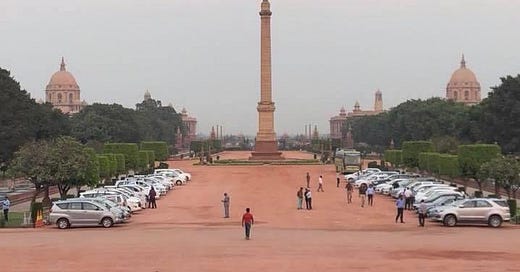


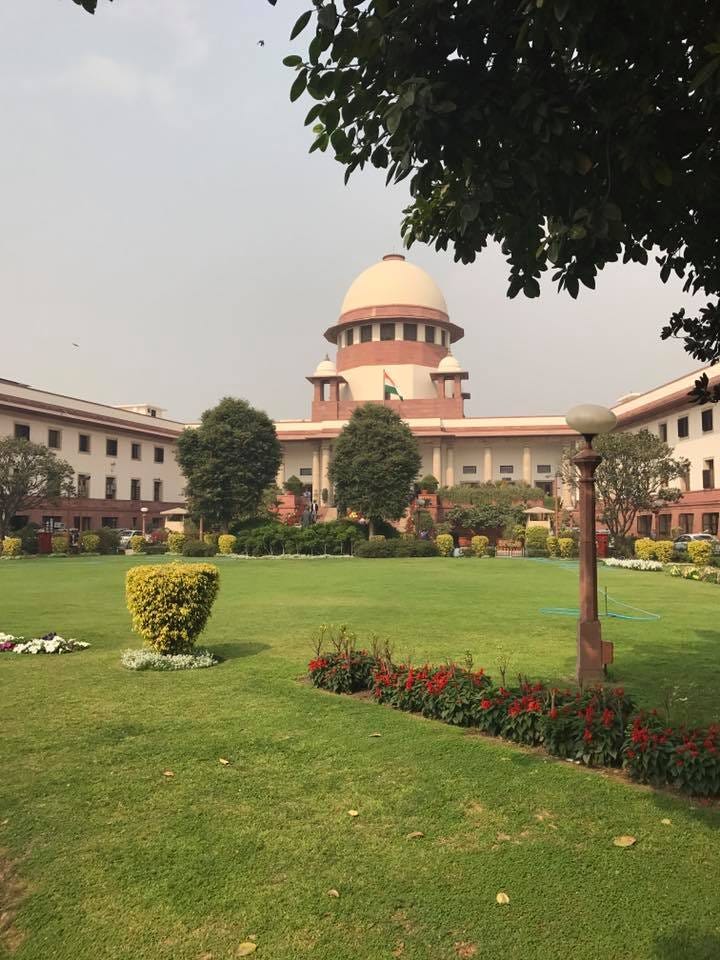

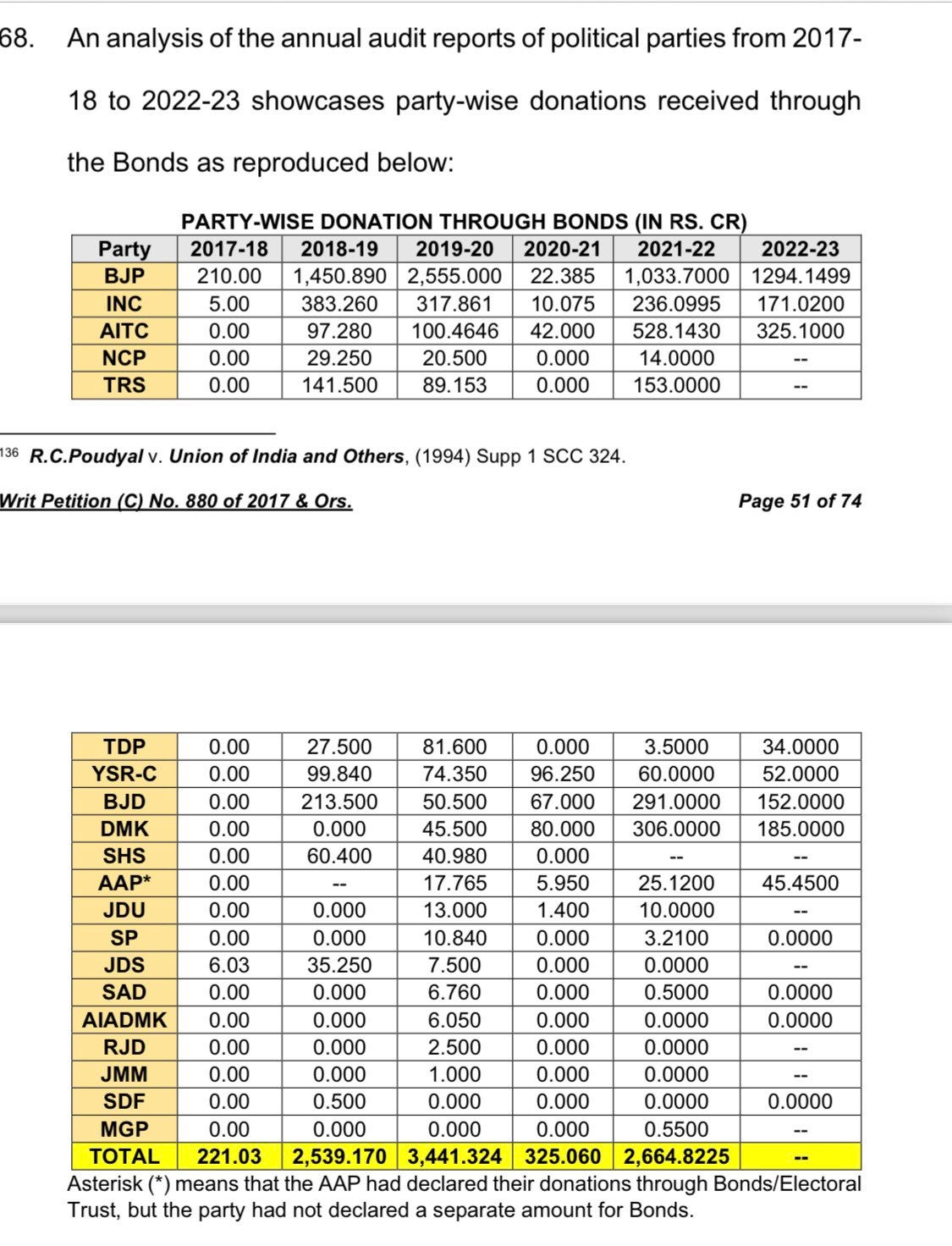
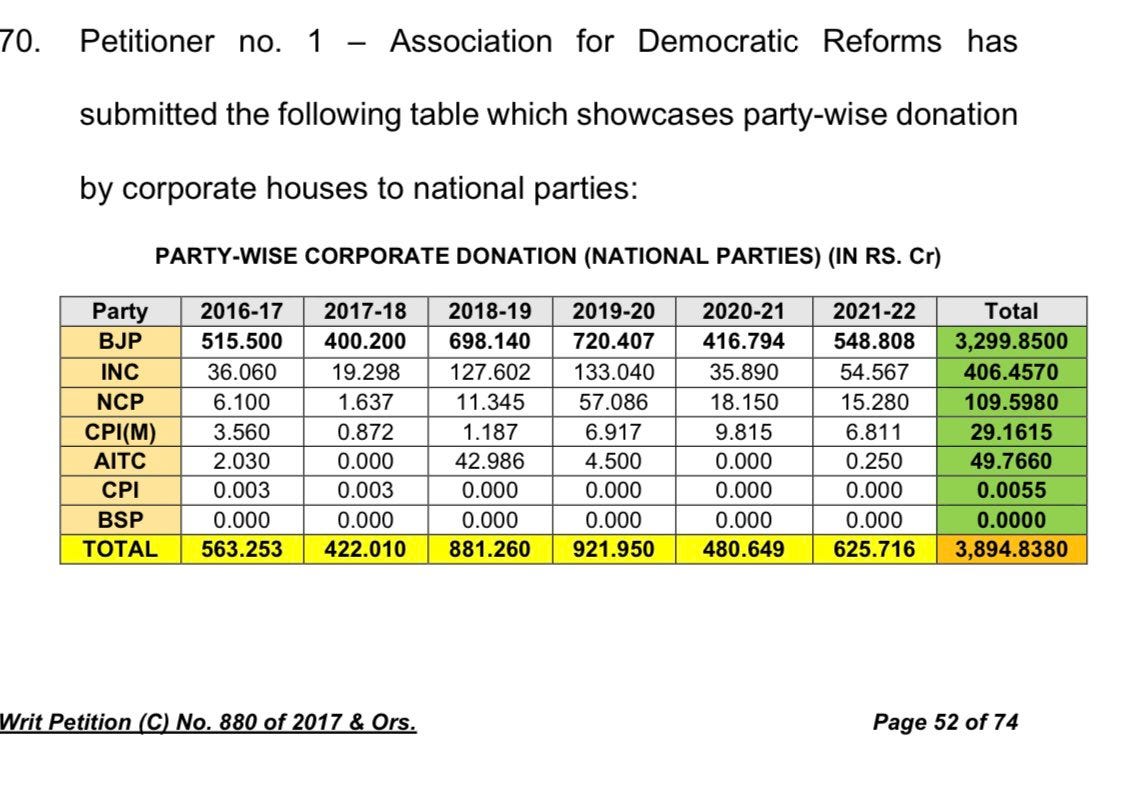
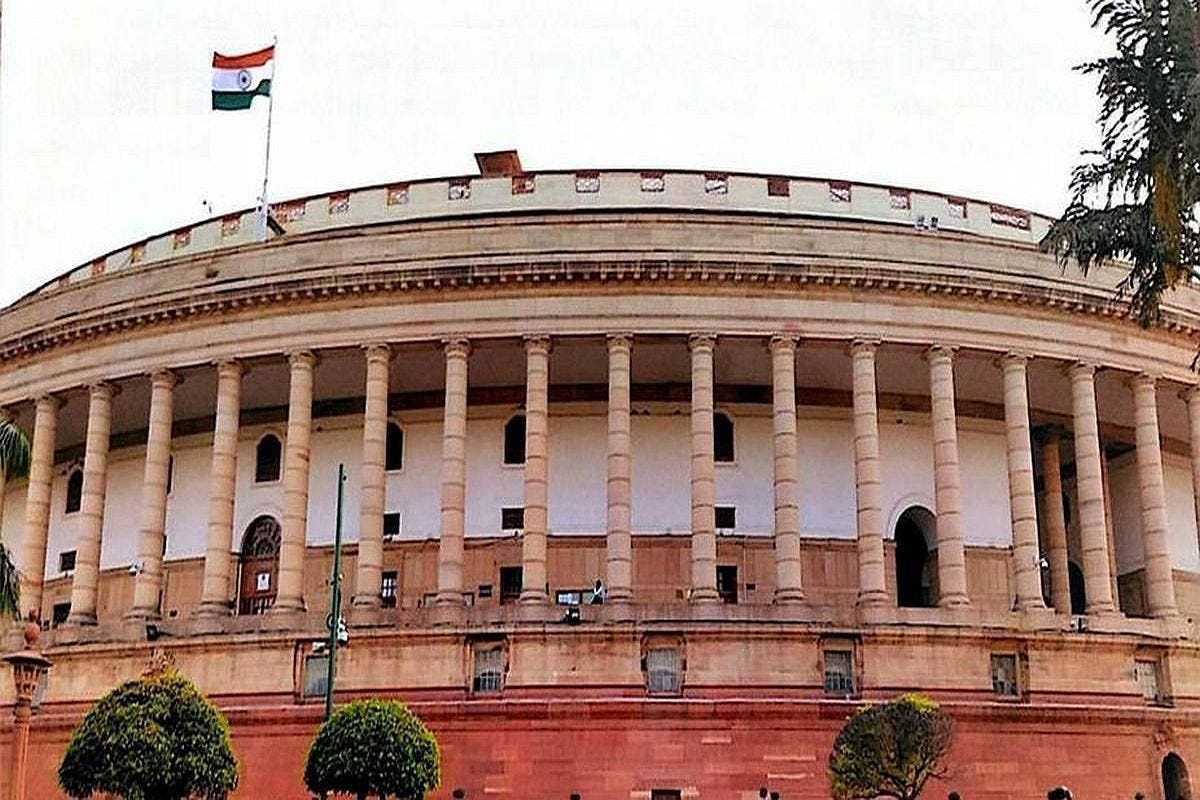
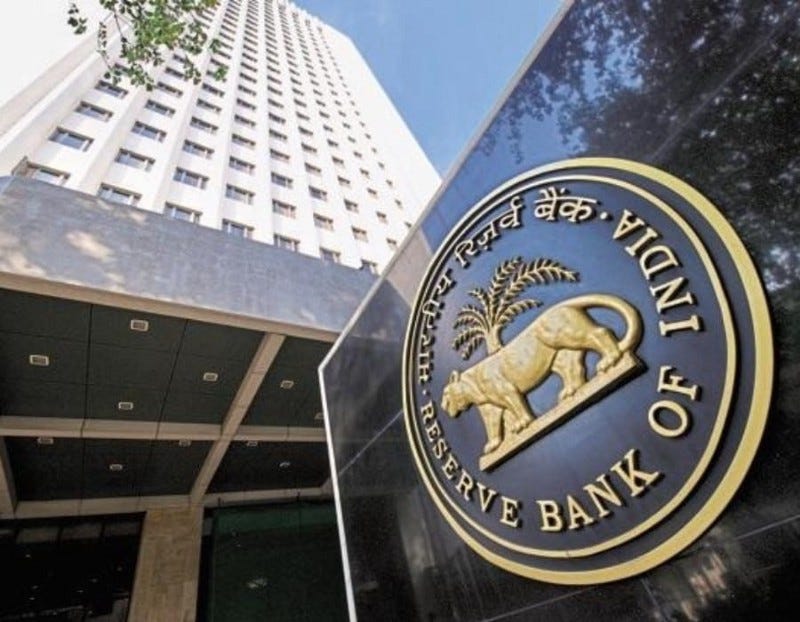
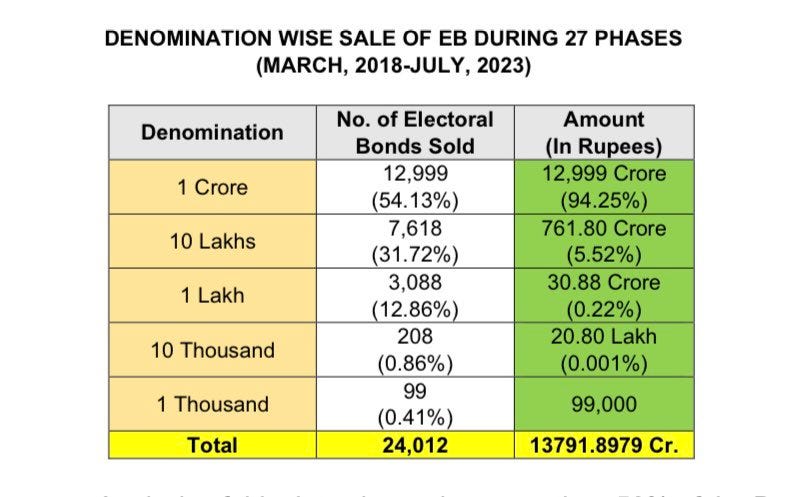
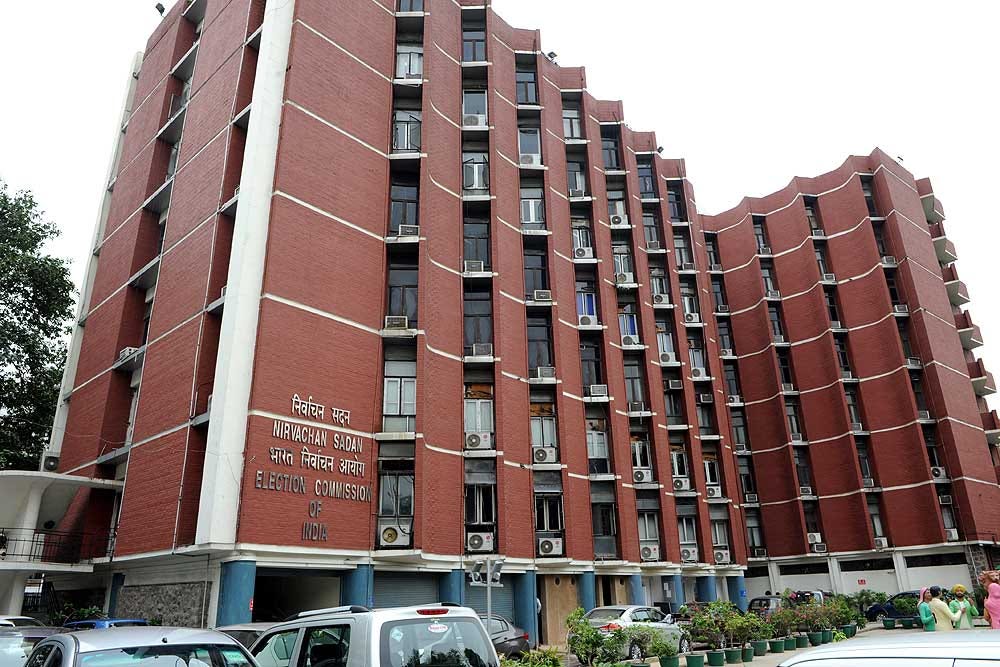

Undoubtedly a landmark judgment. Three cheers to the Judiciary in action mode. The nuances and mechanics of the Electoral Bonds has been thoroughly explored by the author and put forward in an interesting article ✌️
The judgement of Supreme Court adversely affect those in opposition than the ruling party